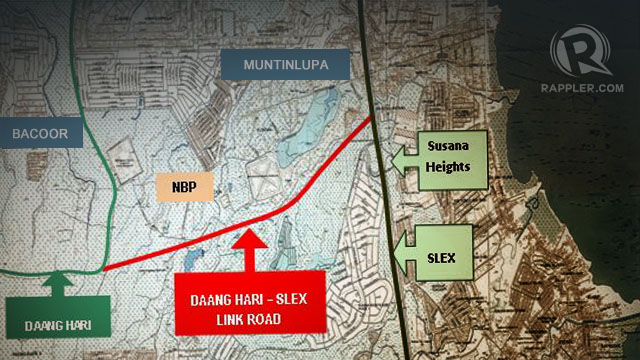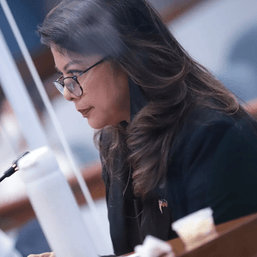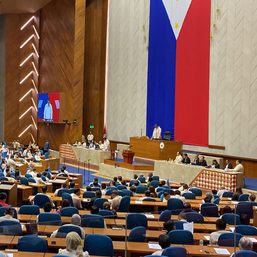SUMMARY
This is AI generated summarization, which may have errors. For context, always refer to the full article.
MANILA, Philippines (UPDATED) – The Ayala-led consortium won the four-kilometer Daang Hari toll road concession, the first and one of the smallest public-private partnership infrastructure projects of the Aquino government.
Ayala Corp and Spanish partner Getinsa Ingineieria submitted a P902 million financial bid, while the team of San Miguel Corporation, Citra Lamtoro Gung Persada Star Tollway Corp. submitted a lower bid P608 million.
This amount will be used to reimburse the government for its initial expenses and to pay for the 30-year concession.
“Unless there are any protests, it is fair to say it will be going to Ayala,” public works secretary Rogelio L. Singson Secretary told reporters on Dec. 15.
He added that the Ayala group’s bid is “three times the minimum that we expected.”
The floor price for the takeout of the government’s interest was set at P370 million.
“We are happy with the bids. I think they realized the potential of the project,” Singson added.
The winning bidder will then spend at least P1.96 billion to construct and operate the toll road.
The project involves the construction of a new four-kilometer, four-lane paved toll road that will connect the town of Bacoor in Cavite to the SLEx via Susana Heights Interchange in Muntinlupa. It will provide additional access to the growing traffic between Las Piñas and Muntinlupa and the province of Cavite, which is one of the fastest-growing areas in Metro Manila.
First toll road
In a press conference on Dec. 15, Ayala officials said they eye synergies with its real estate group.
This is the first toll road project of the Ayala group, one of the country’s oldest and most diversified conglomerates.
The Ayala group, which has businesses in real estate, banking, manufacaturing, telecommunications, has been keen on diversifying into power and infrastructure projects the government may bid out.
This pits them against other conglomerates with ambitions in these sectors, including San Miguel Corp., Metro Pacific Investments Corp. (MPIC), Aboitiz Equity Ventures Inc. and JG Summit Holdings Inc.
In the 90’s the Ayalas were part of the consortium behind the MRT-3, a build-operate-transfer project with the government. Together with most of the consortium members, the Ayala group eventually sold their interest in the rail project.
MRT-3 is the elevated railway on Epifanio de los Santos Avenue or EDSA, a major thoroughfare in the country’s capital.
The Ayalas had wanted a comeback and participated in the initial stages of the bidding for the operations and maintenance of MRT-3 in April 2011. However, before the award, changes in the Transportation Department ensued. When Mar Roxas took over in July, he stopped the bidding process to make way for a review of the project.
Delayed PPP
The MRT-3 was supposed to be the first of the 10 big-ticket infrastructure projects under the PPP flagship scheme of the Aquino government.
Aquino government has been criticized for moving too slow in project implementation after it was unable to deliver on its promise of constructing at least 10 PPP projects within the year.
The delays partly contributed to the slow growth of the Philippine economy in the first full year of the Aquino government.
According to economic planning secretary Cayetano Paderanga, the delays may have shaved off around 0.25% to 0.5% from the country’s GDP growth.
Add a comment
How does this make you feel?






![[Newsstand] State of the opposition: The fog of normalization](https://www.rappler.com/tachyon/2022/08/tl-opposition.jpg?resize=257%2C257&crop_strategy=attention)

![[Newsstand] The Angat Buhay NGO is not enough](https://www.rappler.com/tachyon/2022/07/angat-buhay-not-enough-july-5-2022.jpg?resize=257%2C257&crop_strategy=attention)






There are no comments yet. Add your comment to start the conversation.